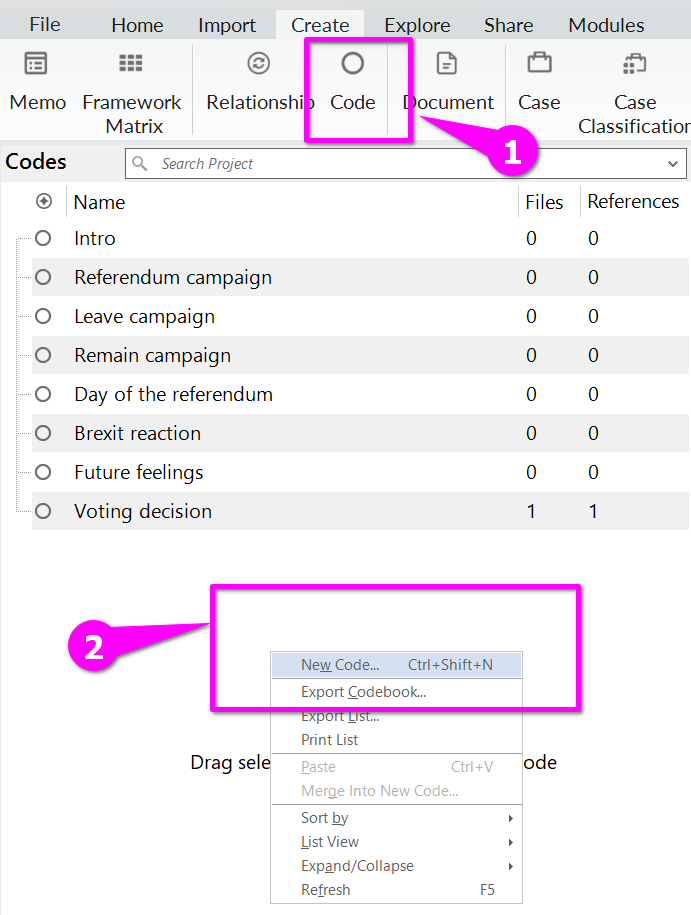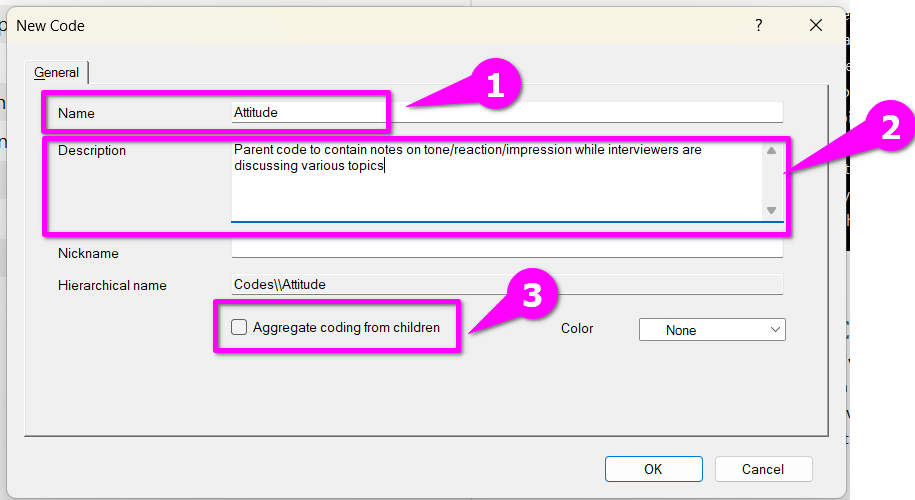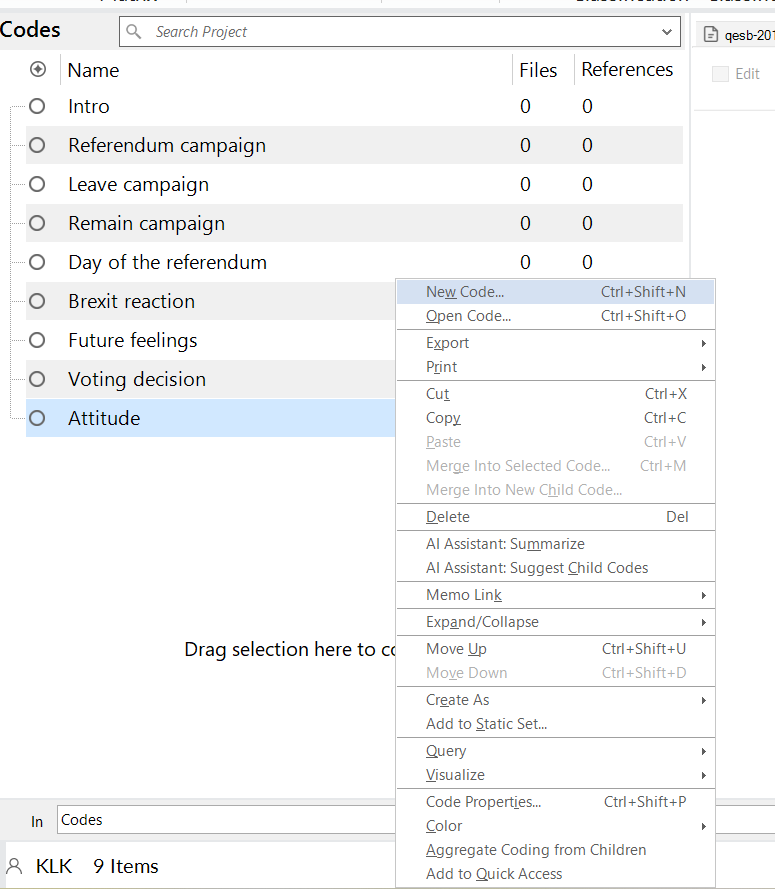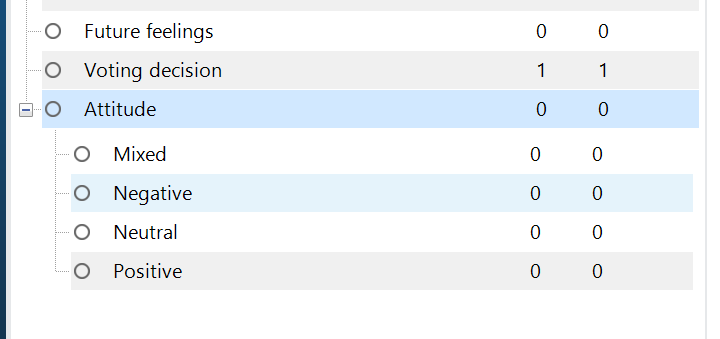Open coding
What is open coding?
‘Open coding’ refers to inductive forms of coding, where meaning emerges from the data through the researcher engaging with the content and deciding to create a code.
Codes are not pre-defined; they emerge through the analysis.
Coding based on attitudes/emotions
We know there are likely to be strong opinions expressed, so let’s set up some attitude codes that we can quickly apply while reading the interviews:
- Create a new parent code by either 1) selecting Create->code on the top ribbon or 2) right- clicking in the open space under the codes and selecting ‘new code’:

- Give this new code the title ‘Attitude’ (1), give it a rich description (remember your future self) (2),
- Do not ‘aggregate coding from children’ for the attitude parent code (3), as we would seldom search for something including everything coded at any type of attitude. This can be toggled on later if needed, though.

Next, we want to create sub-codes within ‘Attitude’ for:
- Mixed
- Negative
- Neutral
- Positive
- To create a sub-code right-click an existing code and select ‘new code’:

You can see you now have a basic set of attitude codes to code to as you read the transcripts:

Create new code based on ideas emerging in the data
As you read, you may start to notice a key theme/idea/concept popping up throughout that doesn’t fit into an attitude that you have pre-defined. You may decide that this deserves its own new code. For example, the theme of ‘immigration’ emerges repeatedly
- Create a new code for this in the same way as before…
Practice open coding
- Spend some time open coding by reading thorough the interviews in the 2016 interview folder.
- As you go along, code to existing codes or make new ones for recurring ideas. Don’t worry about going back and coding something that might not have occurred to you earlier in the interview or in previous interviews.
Remember that coding is iterative! and the same piece of text can have MULTIPLE CODES.
Reflexive coding
Don’t be afraid to re-code the same section with more than one thing (e.g. you might code one comment as ‘trust’, ‘Labour Party’, and ‘positive’).
Don’t be afraid to make mistakes – you can always un-code!

